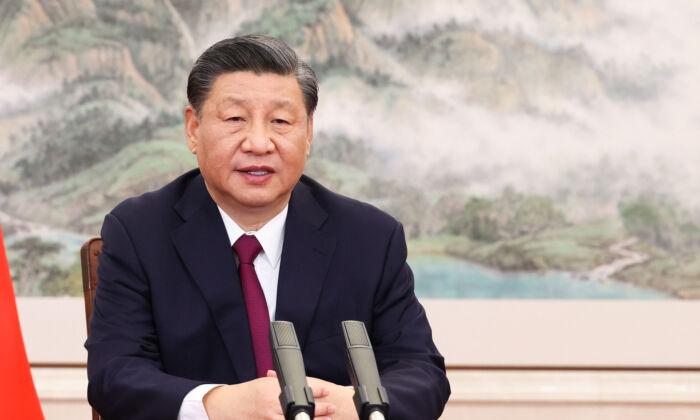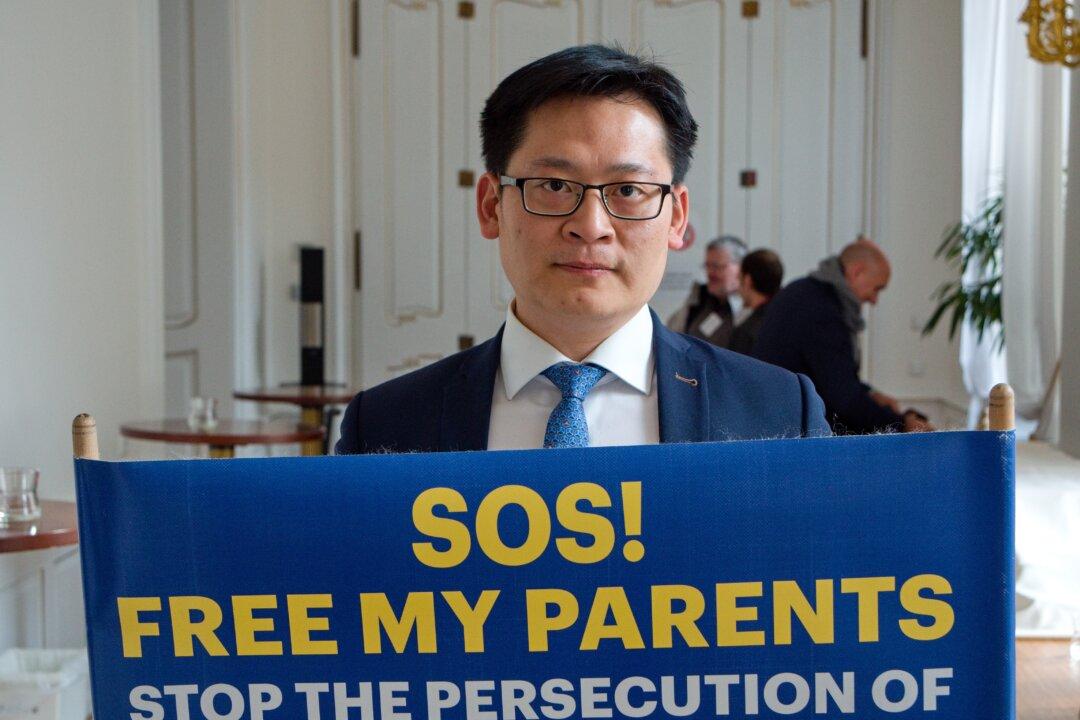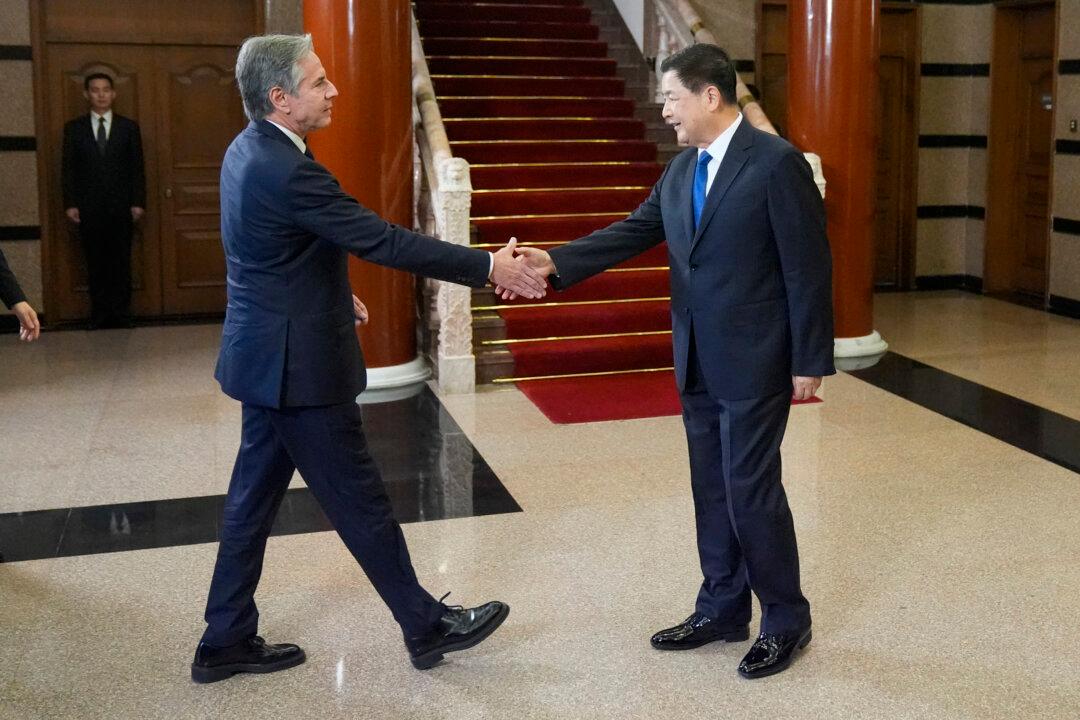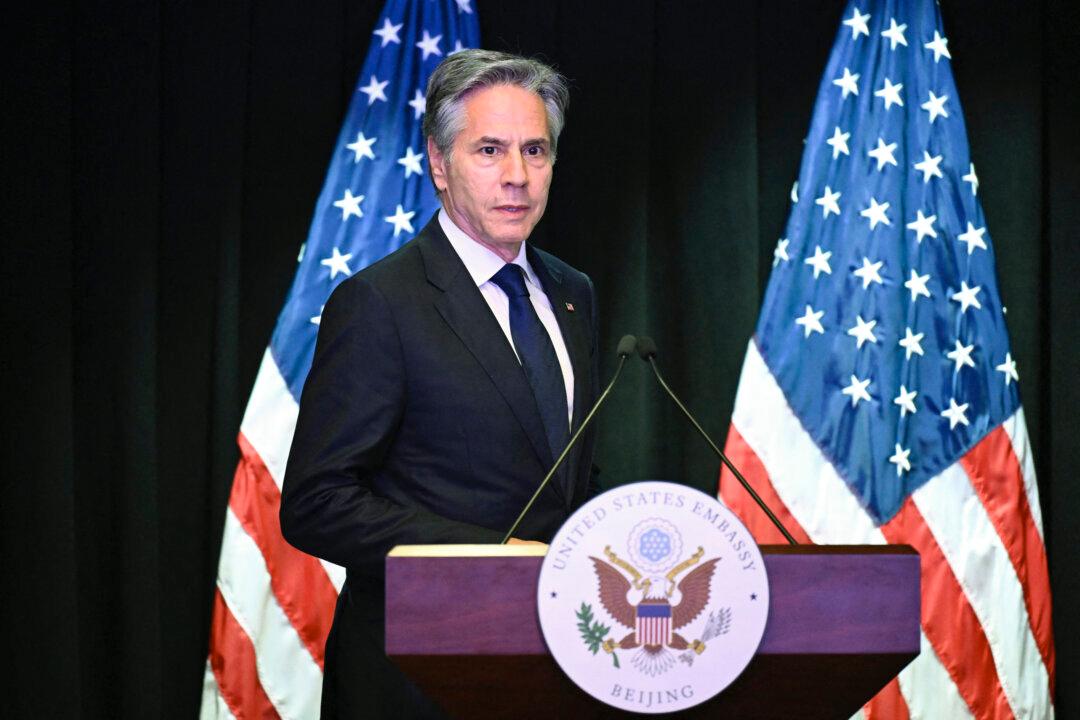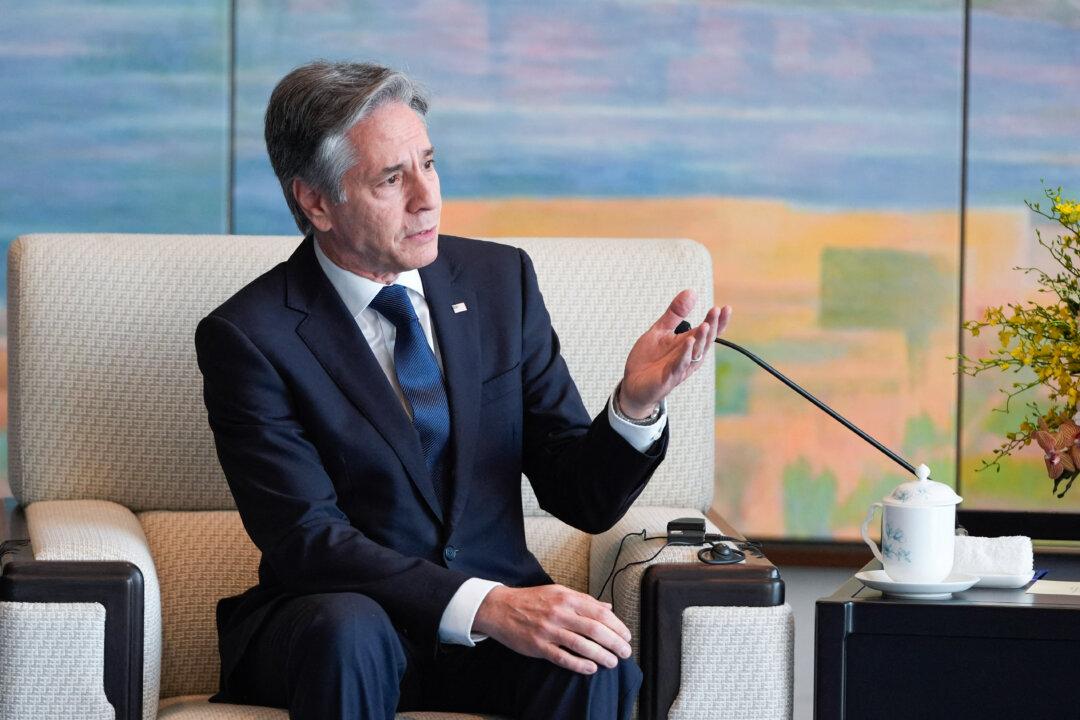Chinese leader Xi Jinping on April 21 took several veiled swipes at Washington and allies’ sanctions on Russia, while proposing what he called a new China-led “global security initiative.”
The “indivisibility of security” broadly refers to the idea that the security of one state is inseparable from that of other countries in the region, and thus no state should enhance its security at the expense of another’s. Russian President Vladimir Putin, in justifying his invasion of Ukraine, had argued that NATO’s strategy breached this principle.
The Chinese leader’s remarks, made during a video speech to the annual Boao Asia Forum, came as Beijing continues to strengthen its ties with Moscow even after Putin’s invasion. Earlier this week, a top Chinese diplomat pledged to deepen links with the aggressor state during a meeting with Russia’s envoy to China in Beijing.
Xi didn’t explain how the framework will be implemented.
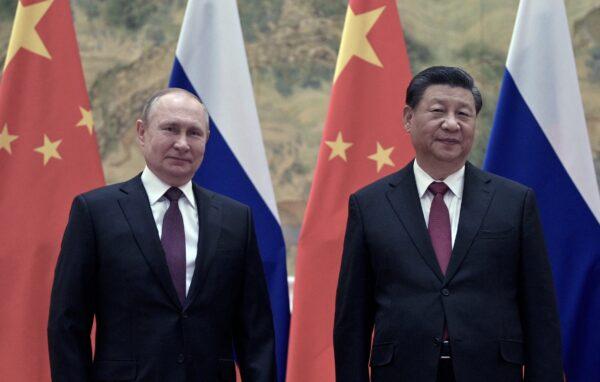
The Chinese leader also reiterated Beijing’s opposition to “long-arm jurisdiction” and “unilateral sanctions,” without directly naming any country.
Economic Woes
This year’s Boao Forum, known as the “Asian Davos,” came amid concerns about the impact of the regime’s heavy-handed “zero-COVID policy” on the global economy which is already being hit by the knock-on effects of the Ukraine war.Economists from banks including Nomura and Barclays and the International Monetary Fund (IMF) earlier this week revised down their GDP forecast for China, well below Beijing’s target of “around 5.5 percent.” Missing the key economic target could be an embarrassment to Xi who is seeking an unprecedented third five-year term in office at an important Chinese Communist Party meeting this fall.
The “strong resilience” of the Chinese economy is “unchanged” Xi told the conference on the southern Chinese island of Hainan, a free trade port that has not been locked down. He also called for advancing Asian cooperation amid growing isolations from the West.
Guests at the conference include Israeli President Isaac Herzog, Philippine President Rodrigo Roa Duterte, and IMF Managing Director Kristalina Georgieva, according to Beijing’s foreign ministry.
